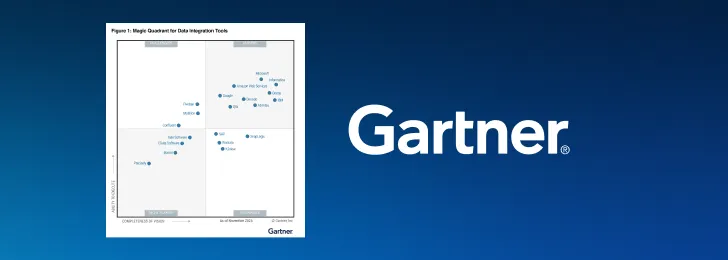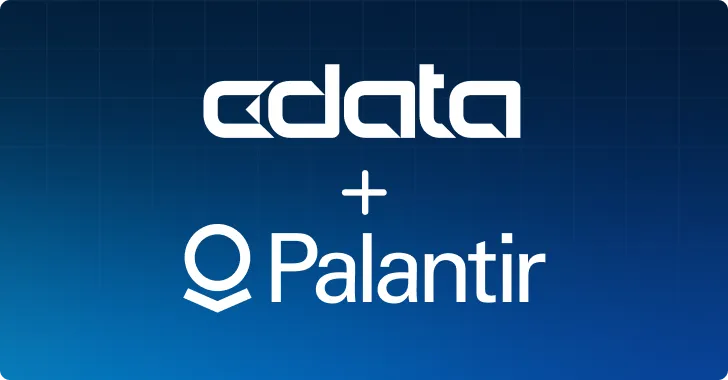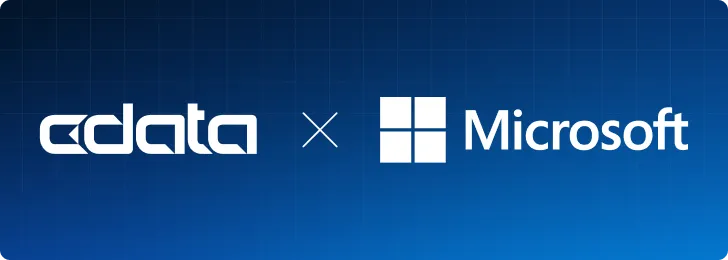
Integrating AI with enterprise data is a key challenge for modern organizations. Model Context Protocol (MCP) offers a powerful solution, enabling AI tools like Claude to directly interact with external systems. With a growing variety of MCP servers now available, understanding how different options compare is becoming increasingly important for organizations looking to effectively leverage AI in business contexts.
Within a period of a few weeks, three different MCP servers were launched for the popular CRM platform, HubSpot, which might have you wondering: How do these approaches stack up, and how can I choose the right one for integrating the enterprise data I work with into my AI workflows?
This article details a comparison of these three distinct HubSpot MCP server approaches: HubSpot's own native MCP Server, Zapier's HubSpot MCP Server, and the CData MCP Server for HubSpot. Our goal was to understand their configurations, available toolsets, and performance characteristics when Claude leverages each of them to answer a strategic query.
The testing environment
For the purposes of this comparison, we established a standardized testing environment:
HubSpot account: All three MCP servers were connected to the same dedicated demo account with consistent access privileges across the board.
Data Set: A small demo dataset was utilized, comprising approximately 200 contacts, 200 companies, and 25 deals. Please note: all data used in this comparison is completely fictional in nature.
Model: All tests were conducted using the Claude Sonnet 4 model.
Let's take a look at the requirements for configuring each MCP server to work with Claude.
Configuration
The setup process varied significantly across the three approaches:
HubSpot MCP Server
The HubSpot MCP Server runs locally and installing Node.js and npm are prerequisites for configuration. From there, users need to manually create a private app within HubSpot. Next, HubSpot requires you to edit the Claude desktop config file to include the private app access token. This method assumes familiarity with command-line interfaces and configuration files, making it less accessible to non-technical users.
Zapier HubSpot MCP Server
Zapier offers a guided, web-based configuration experience for its MCP servers via mcp.zapier.com. Users walk through server creation and choose which HubSpot tools to connect (we opted to enable all of the available tools for this comparison). Authentication is handled via OAuth. Zapier’s solution runs as a remote MCP server, and as of this writing, Claude supports remote MCP server integrations only for its Max, Team, or Enterprise users, so an upgraded plan is required. Final integration must be completed by a Claude organization owner using the Integration URL provided by Zapier in Claude’s settings.
CData MCP Server for HubSpot
The CData MCP Server for HubSpot offers a streamlined local installation experience, guided by an installation wizard. No external development tools are required to configure CData MCP Servers, and there is no need for any command-line interaction. Configuration of the MCP server and its connection to HubSpot is done via a separate server configuration wizard, which handles writing to Claude’s config file for the user. Authentication is flexible, supporting both OAuth and private token methods, making it accessible to a wide range of users without sacrificing control or security.

CData MCP Server for HubSpot Installation Wizard

CData MCP Server for HubSpot Configuration Wizard
Toolset and performance analysis
When Claude utilizes an MCP server, it provides the user with visibility into the steps it takes to produce a response. This transparency allows for a detailed comparison of how Claude leverages the available toolset for the MCP servers it has at its disposal.
To compare the server capabilities, we used the following prompt, provided by one of our internal sales directors as a real-world example of a question he would look to answer by analyzing CRM data:
Prompt: What industries are gaining traction for our most popular product in terms of sales in the midmarket?
To evaluate each MCP server, we conducted a direct comparison: enabling them one at a time and presenting Claude with this exact prompt. This allowed us to directly observe and compare the unique characteristics of each distinct MCP approach in action.
HubSpot MCP Server
Tool Arsenal: 21 tools that enable HubSpot’s native MCP server to do basic reads & writes, though a series of tools for batch operations unlocks more efficient processing at scale.
Performance metrics:
Key observations: The native HubSpot MCP Server provides straightforward API access and efficient token usage, producing the quickest response with the fewest requests, but is fundamentally limited by its reliance on simple JSON requests. Claude cannot perform JOINs, complex filtering, or aggregations (SUM, AVG, COUNT), often resulting in arbitrary limits on returned data.
Explore the full chat session here: HubSpot MCP Server Chat (claude.ai)
Example requests & responses (screenshots):


Full response produced:


Zapier HubSpot MCP Server
Tool arsenal: 53 tools ranging from those for reading and creating common HubSpot objects like deals & contacts to specialized tools for granular actions like creating form submissions & social media messages, which distinguishes its toolset from the others in breadth and specialization.
Performance metrics:
Key observations: Zapier's implementation appears to include an additional agentic layer on top of Claude, allowing the system to embed natural language instructions in its requests and ask clarifying questions to self-refine requests. However, this seems to require additional processing before the request hits the HubSpot API and, factoring in the remote nature of Zapier’s MCP server, likely adds significant latency, demonstrated by the fact that it took nearly 4 minutes to produce the response despite only 10 requests being sent. It should be noted that Zapier’s dedicated tooling can complete actions in single API calls, which also results in efficient token usage.
Explore the full chat session here: Zapier HubSpot MCP Server chat session (claude.ai)
Example requests & responses (screenshots):


Full response produced:


CData MCP Server for HubSpot
Tool arsenal: Equipped with 11 tools, the CData MCP Server offers essential functions for reading objects and columns and inserting records. The true differentiator, however, is the run_query tool, which empowers Claude with full SQL querying capabilities.
Performance metrics:
Key observations: Though CData’s HubSpot MCP Server provides fewer tools, its run_query capability enables Claude to construct complex SQL queries with JOINs, sophisticated filtering, and intelligent aggregations. Requests are generated and executed quickly, demonstrated by Claude processing 18 requests in just over 2 minutes. This fundamental difference in approach allows for more nuanced data analysis, though the versatility it provides comes at the cost of token efficiency as Claude reasons its way through finding a path to resolution.
Explore the full chat session here: CData MCP Server for HubSpot chat session (claude.ai)
Example requests and responses (screenshots):

Full response produced:



Conclusion
Our comparison reveals significant differences in the capabilities and efficiency of the three HubSpot MCP Server approaches for the CRM data analysis use case we tested.
HubSpot's native MCP server excels at straightforward API operations with minimal latency, making it ideal for simple queries, rapid prototyping, and token efficiency. While its setup involves a more technical process (requiring Node.js/npm and manual configuration), it offers an effective direct, local integration between Claude and your HubSpot data.
Zapier's HubSpot MCP Server provides a streamlined configuration experience via mcp.zapier.com, though it requires an upgraded Claude plan. As a remote MCP server, users will experience added latency, making it less performant for data retrieval. Where it truly shines is its more comprehensive toolset, enabling specific actions beyond what the alternatives offer dedicated tooling for, such as creating form submissions, COS blog posts, and social media messages in a token-efficient manner.
The CData MCP Server for HubSpot distinguishes itself through its streamlined installation process and by representing data from the source system as a tabular model that Claude can use to query data. This model, inherent to CData's approach, presents live HubSpot data in a structured, SQL-accessible format for AI tools. This core capability, combined with the run_query tool, unlocks the full potential of SQL, enabling Claude to perform complex analysis directly on live HubSpot data. Though the CData MCP Server comes equipped with fewer individual tools, its tabular model, run_query tool, and robust SQL engine collectively empower Claude with the ability to perform JOINs, call stored procedures, and apply sophisticated filters and aggregations, providing a significant edge in executing data-intensive queries. However, it should be noted that the flexibility provided by CData’s intelligent database-like access to external data can come at the cost of token efficiency as the LLM must run multiple queries to understand the data model before executing operations.
Ultimately, the best MCP server approach depends on the specific needs and technical expertise of the user. For users requiring simple data access and basic interactions, HubSpot's native MCP server might suffice. Zapier's offering could be appealing for those seeking a broader range of direct actions who are comfortable with a more abstracted, agentic approach. Finally, for organizations seeking powerful and flexible data analysis capabilities, the CData MCP Server for HubSpot, with its SQL-powered run_query tool, presents a compelling solution.
Check out how CData's MCP Servers can enhance your AI workflows and securely connect your LLMs to the data they need
Try CData MCP Servers Beta
As AI moves toward more contextual intelligence, CData MCP Servers can bridge the gap between your AI and business data.





